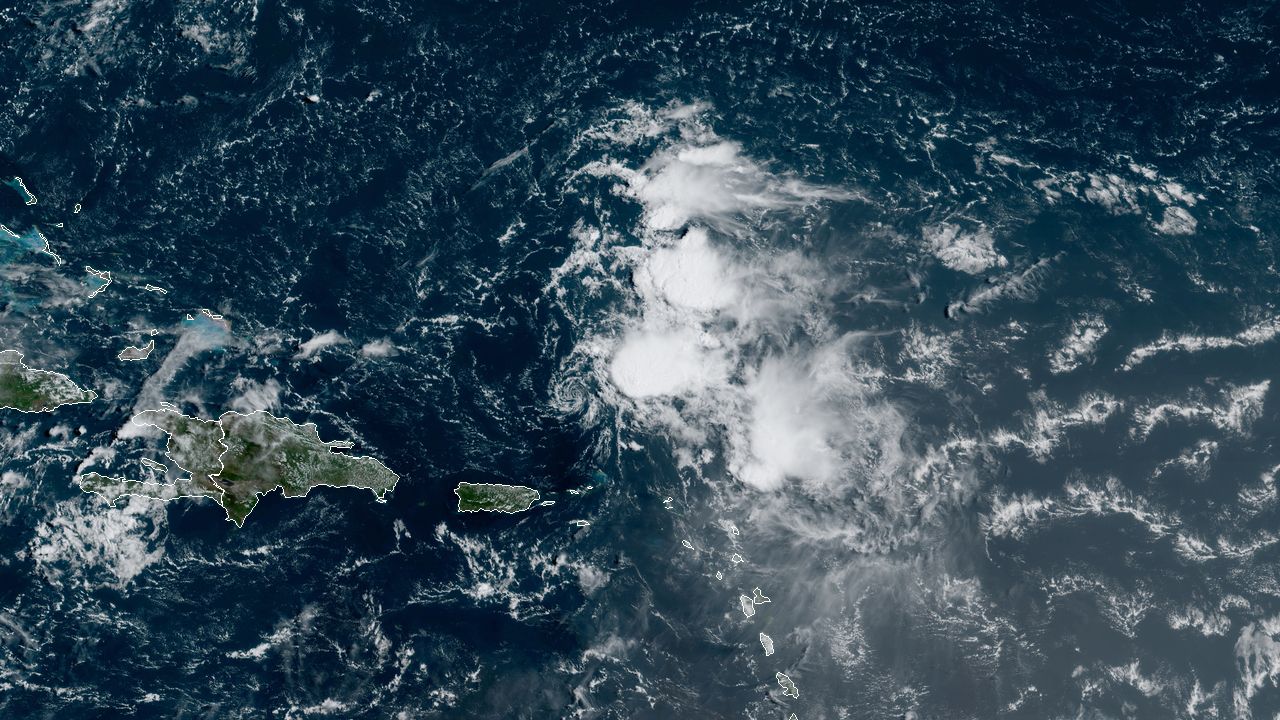Tropical Storm Josephine and Kyle both fell apart without directly affecting land.
Continuing a historic start to the 2020 Atlantic hurricane season, Tropical Storm Kyle formed off the North Carolina coastline on Friday afternoon. It didn't last long, as it lost its tropical characteristics Sunday morning. It's moving east across open water.
Tropical Storm Josephine met its demise hours later. It ran into wind shear, which tore apart its thunderstorms. As it continued its northward trek, it ran into even more challenging conditions and lost its circulation Sunday afternoon.
Its remains will arc back to the northeast toward Bermuda as a weak remnant low pressure system. This will keep it far from the East Coast.
While both storms were weak and didn't affect land, Josephine and Kyle will go down in the record books. Josephine became the 10th-named storm of the Atlantic season on Thursday, and Kyle became the 11th-named storm of the season on Friday.
Kyle became the earliest K-named storm on record on Friday, beating Katrina's previous record date from August 24th, 2005.
Josephine marked the earliest J-named storm on record, beating the old record set by Tropical Storm Jose back in 2005.

The 2020 tropical season in the Atlantic has already set records for the earliest C-, E-, F-, G-, H- and I-named storms.
Typically, the 11th-named storm of the Atlantic season doesn’t form until November and we're still roughly a month away from the peak of the Atlantic hurricane season.
The Atlantic averages 11 named storms in a full season.
.jpg)
Two other tropical waves are over the eastern Atlantic and are far from land. They have a low chance of development in the next five days.



